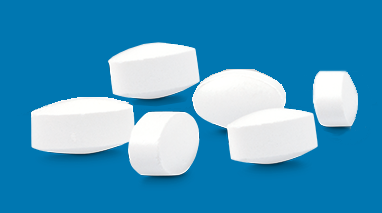Effective precursor to NAD+
- Formulated with two forms of slow-release niacin for optimal absorption
- Niacin is an effective NAD+ booster and is converted further to NADH in the body
- Based on scientific research
- Niacin contributes to normal energy-yielding metabolism and reduces tiredness and fatigue
- Manufactured under Danish pharmaceutical control
Bio-NAD+
| 2 tablets contain | %NRV* | |
|---|---|---|
| Niacin | 500 mg NE** | 3125% |
*NRV = Nutrient Reference Value
**NE = Niacin equivalents
Product Facts
Directions
1 tablet 2-3 times daily for people over 18 years of age.
Do not exceed the recommended amount.
Suitable for vegetarians and vegans.
People taking medication should seek professional advice prior to taking supplements.
Not suitable during pregnancy or breastfeeding.
Ingredients
Bulking agent: Hydroxypropyl methylcellulose,
Microcrystalline cellulose.
Niacin (Nicotinamide, nicotinic acid).
Anti-caking agent: Magnesium salts of fatty acids.
Storage
Room temperature and protected from light.
Keep out of reach of children.
What is Bio-NAD+ Booster?

Bio-NAD+ Booster consists of white tablets, each containing 250 mg of niacin divided into nicotinamide and nicotinic acid. The recommended dosage for Bio-NAD+ Booster is two to three tablets daily, divided over the day. The product's formulation has been developed by Pharma Nord and is based on scientific research. The active substances in the tablets are released slowly, which provides optimal absorption and utilisation in the body.
Why a booster?
In 2020, researchers at the University of Helsinki published the results of a clinical trial, which showed that a combination of nicotinamide and nicotinic acid in a special slow-release tablet increased NAD+ levels in the blood up to eight times over a few months.
This research is the basis for Bio-NAD+ Booster. Supplementation of NAD+ is therefore unnecessary. This is because supplementing NAD+ or NADH in the blood will not benefit the cells significantly. Instead, the body's cells must produce it themselves. Therefore, an NAD booster is preferable, as it contains the precursors so that the cells can form it themselves.
About Niacin, NAD+ and NADH

There are a number of different substances that act as precursors to NAD in the body through a variety of biological processes. Examples of these precursors include nicotinic acid, nicotinamide, nicotinamide riboside (NR), and nicotinamide mononucleotide.
NAD (nicotinamide adenine dinucleotide) is a coenzyme that is central to metabolism. NAD, which is found in all living cells, is called a dinucleotide because it consists of two nucleotides linked by their phosphate groups. One nucleotide contains an adenine nucleobase and the other contains nicotinamide. NAD exists in two forms in the body: NAD+, which is the oxidized form, and NADH, which is the reduced form.
NAD is classified as a coenzyme, i.e.a substance that enables biochemical reactions to take place in the body.
NAD in both oxidised and reduced forms plays an important role as the tiny power plants of cells (the mitochondria) convert calories from food into energy. The citric acid cycle and the electron transport chain are key steps in the energy conversion of cells. It is through these processes that we can form the molecule ATP, which is our "energy currency", which is used in the body's energy-requiring processes.
Niacin is converted to NAD
Niacin (in the form of nicotinamide and nicotinic acid) belongs to the group of B vitamins that are converted to NAD in the body. NAD is produced in the body via different synthesis pathways, such as from the amino acid tryptophan (de novo synthesis) or from niacin (Preiss-Handler synthesis). The body's natural NAD production decreases as we age because these signalling pathways become less efficient.
Slow release formulation

Because niacin, like the other B vitamins, is water-soluble, it can be absorbed into the bloodstream fairly quickly from the gut. However, water-soluble nutrients can be lost by diuretics such as caffeine, alcohol, and certain medications because they cause the body to lose water.
Niacin in a slow-release formula allows the compounds to be absorbed slowly into the bloodstream. This allows for a steady release and prevents large losses.
Official claims
The European Food Safety Authority (EFSA) has evaluated the scientific evidence regarding the positive health effects of niacin. The following health claims have been approved:
Niacin
Contributes to a normal functioning nervous system
- Contributes to a normal energy-yielding metabolism
- Contributes to normal psychological function
- Contributes to the maintenance of normal skin and mucous membranes
- Helps reduce tiredness and fatigue


